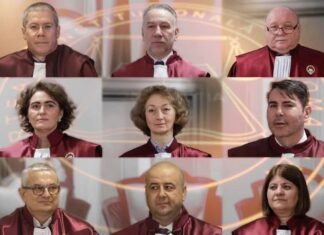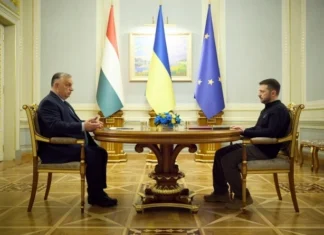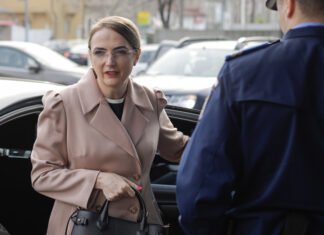An analysis by Politico highlights the rising political figure George Simion, the candidate from the AUR party and currently leading in the first round of Romania’s presidential elections. Simion is noted for his rhetoric, which bears a striking resemblance to that of former U.S. President Donald Trump. He aims to position himself as an ‘anti-system fighter,’ appealing to a base that is disillusioned with traditional political structures.
Simion’s campaign rests on a nationalist and eurosceptic platform, advocating for a vision of a ‘Greater Romania.’ This ambition raises concerns, especially regarding Romania’s relationships with its neighboring countries, as it may provoke tensions and misunderstandings in the region. His emphasis on nationalism taps into a broader trend observed in several European nations, where populist leaders have gained traction by promoting similar sentiments.
Moreover, George Simion has faced scrutiny and controversy regarding the financing of his campaign and the provocative statements he has made. Allegations about the sources of his campaign funding have raised questions about transparency and the potential influence of external entities, further complicating his political image. His combative style and willingness to challenge the status quo resonate with some voters, yet they also draw criticism from others who fear the implications of his rise.
If Simion were to secure the presidency, he would mark a significant shift in Romania’s political landscape, becoming the first far-right leader in the country since the fall of communism in 1989. This potential shift is alarming for Romania’s Western allies, who may be concerned about the impact on democratic norms and the rule of law within the country. The rise of far-right populism has been a growing trend across Europe, and Romania’s embrace of such leadership could signal deeper fractures within European unity and cooperation.
Furthermore, Simion’s approach often employs divisive tactics that resonate with voters who feel marginalized. His rhetoric frequently targets elites and portrays the political class as out of touch with ordinary citizens. This narrative is particularly compelling in a context where many Romanians feel that they have not reaped the benefits of their country’s post-communist transformation.
The combination of nationalism, euroscepticism, and a confrontational style places Simion at a crossroads between appealing to a traditional base and alienating moderate voters. As the elections approach, the strategies he employs may have lasting implications not only for his political future but also for Romania’s standing within Europe and its relationships with key international partners.
In summary, the emergence of George Simion as a political contender embodies a broader trend towards populism and nationalism in Eastern Europe. His potential presidency could not only redefine the political landscape of Romania but also serve as a litmus test for the resilience of democratic values in the region. Observers will be closely watching how his campaign unfolds and the potential repercussions it may have on the political fabric of Romania and beyond.






